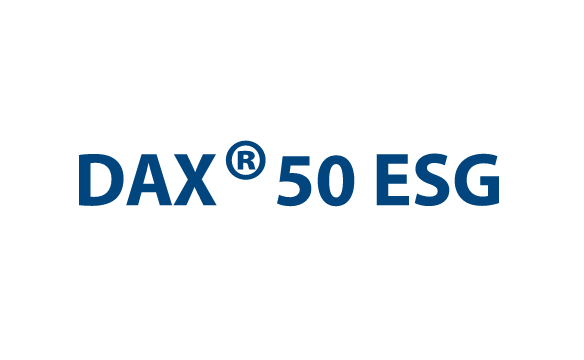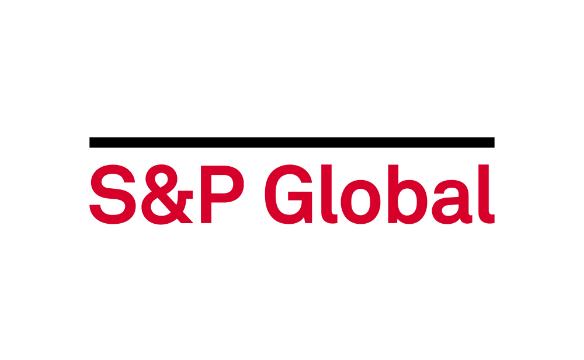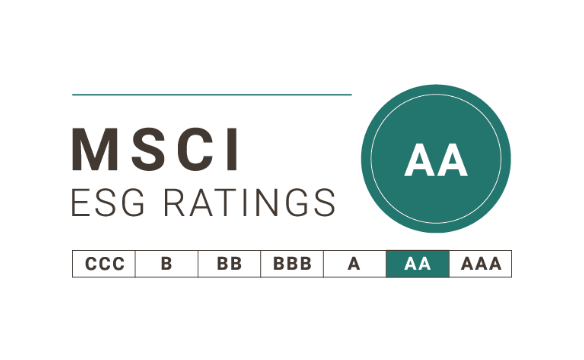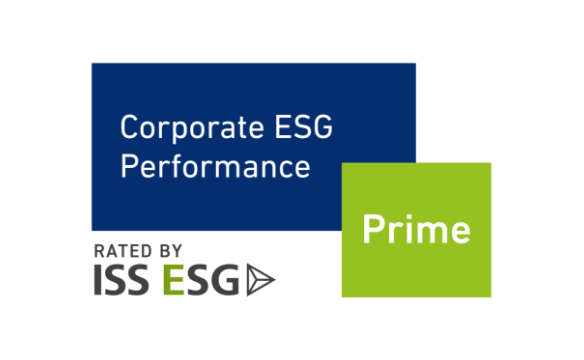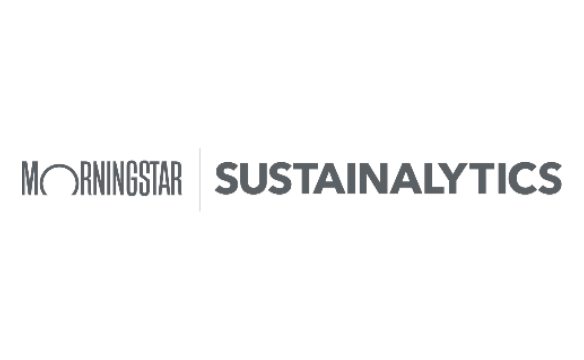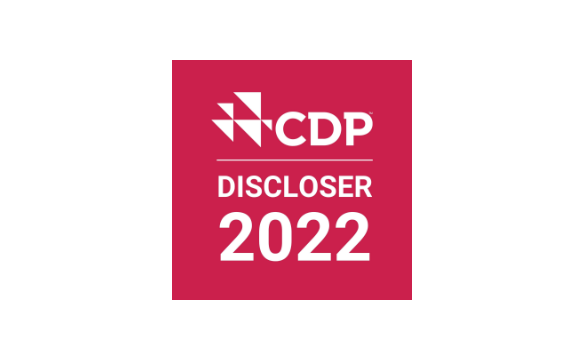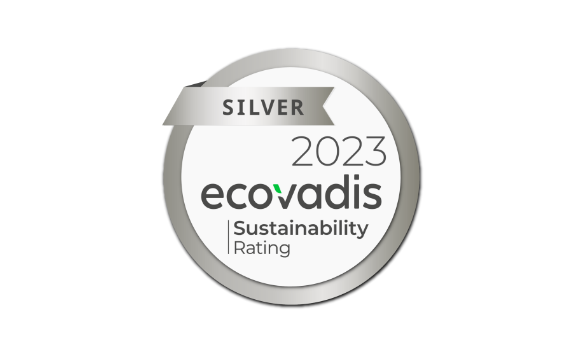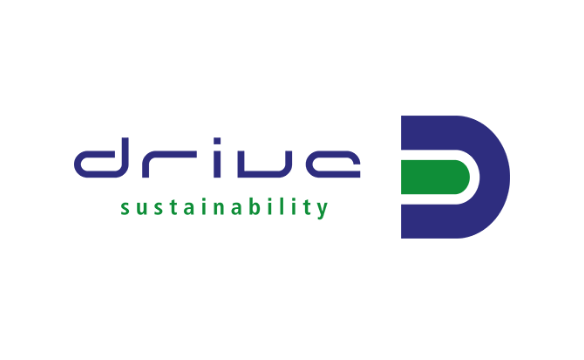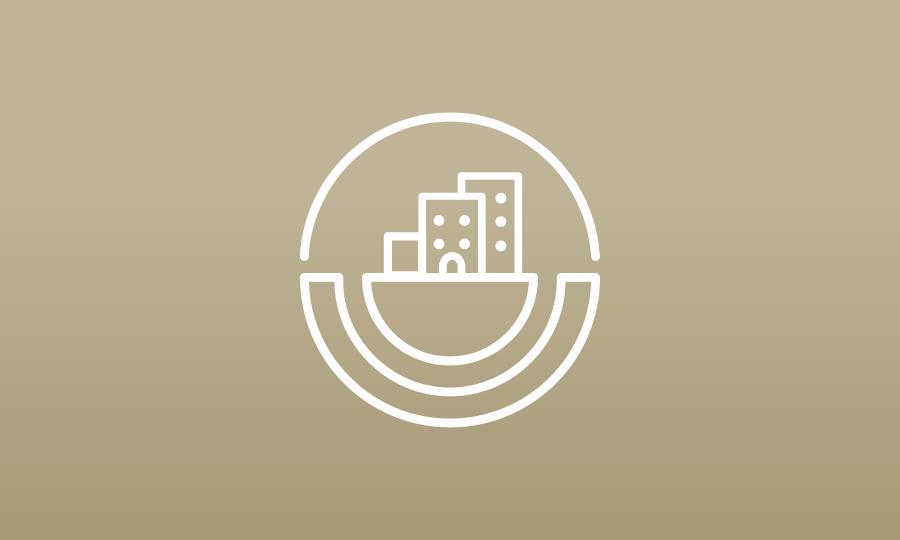Sustainability Management
Knorr-Bremse helps make mobility and transportation more reliable, safer and more efficient with innovative system solutions. Accordingly, sustainability is a core element of our corporate identity and a foundation of our business success. With our management of sustainability, we take responsibility for our employees, customers and business partners as well as the environment and society.
Sustainability Strategy and Materiality
Knorr-Bremse wants to live up to its environmental and social responsibilities. In line with this desire, we have committed to sustainable corporate governance and integrated sustainability into our organizational structures and business processes. We aim to strengthen this integration in the future because the company’s sustainable direction contributes to its business success. The resulting sustainability strategy is impetus for adding value in a way that conserves resources and a key influence on our conduct as a fair business partner and employer.
Our management of sustainability is designed based on international standards and internal rules. They lay out our requirements for sustainable corporate governance and are a guide for our employees’ and business partners’ conduct. These internal guidelines include, for example, our Sustainability Guidelines and our Group-wide Code of Conduct (Sustainability Guidelines). Furthermore, we are guided by international guidelines and conventions such as the UN Global Compact, the UN Guiding Principles on Business and Human Rights, the conventions of the International Labour Organization (ILO) and the UN Sustainable Development Goals (SDGs). Our sustainability ambitions are accomplished using the specific, established management systems and action programs.
The Knorr-Bremse Sustainability Guidelines
Our sustainability guidelines set out the principles and strategic objectives for responsible corporate governance at Knorr-Bremse.
Sustainability GuidelinesOur Code of Conduct defines our understanding of responsible behavior for all Knorr-Bremse employees globally.
Code of ConductOur Supplier Code of Conduct demonstrates our obligation to fair and sustainable business practices within our supply chain.
The quality guidelines for our procurement spell out the requirements that we have of our suppliers with regard to sustainability.
The Conflict Minerals Policy governs the handling of conflict minerals and guides the Purchasing department at Knorr-Bremse as well as Knorr-Bremse’s suppliers.
Internal guidelines specify the extent to which sustainability aspects are to be taken into account in purchasing decisions for various categories (e.g., energy, business travel or energy-efficient products).
Supplier Code of ConductConflict Minerals Policy
There are six Group-wide compliance guidelines that specify principles for conduct. They cover dealing with gifts and invitations, donations and sponsoring, prevention of corruption, conflicts of interest, screening of business partners and fair competition.
The Human Rights Policy brings together all aspects relating to human rights that are currently spread across different Knorr-Bremse guidelines.
Human Rights PolicyWith our Health, Safety and Environment (HSE) Policy, we commit to high performance standards.
HSE PolicyThe Quality Policy defines our high quality requirements for the RVS division, while our Quality First Policy lays out our high quality requirements for CVS.
The Product Safety and Product Conformity Organizational Policy, issued in 2022, provides an organizational framework for fulfilling our product safety requirements.
Through our sustainability strategy, we have set the objective of constantly enhancing our sustainability performance in all areas of the value-adding process. We derive our strategic focus topics from our materiality analysis, international guidelines and external ratings and customer assessments. We also gain important input through dialogue with our stakeholders, such as customers, employees and investors. We have increasingly used the ESG approach to structure our overarching sustainability program, and the measures derived from it, since 2022. This means we are also following capital market requirements and future legislation more clearly.
The ESG Approach
ESG stands for environment, social and governance. It provides a structure for the areas of a company’s sustainability management. The ESG approach is intended to be a tool to achieve sustainable business and company development and make a positive contribution to sustainable development in society as a whole. The term is used mostly in the capital market for the guiding principle of sustainability.
Our materiality analysis, which was updated in 2022, shows us the focus topics we need to prioritize in order to take responsibility for environmental and social challenges. The topics that are identified as material also determine the content of this report. During the analysis, we first evaluated the positive and negative impacts of our business activity on the environment and society from an inside-out perspective. Secondly, we analyzed the topics’ business relevance and impact on Knorr-Bremse’s future viability (outside-in perspective). This confirmed the following 13 focus topics from the previous materiality analysis:
Our Focus Topics
Anti-corruption and Fair Competition
Responsible corporate governance is a prerequisite for gaining the trust of society, customers and employees. It is the basis for the company’s growth and minimizes reputational and legal risks. We hold ourselves to our own high standard of constant compliance with laws, internal regulations and voluntary commitments. Combating corruption and bribery is therefore one of the key topics in compliance management at Knorr-Bremse.
The topic of anticorruption and fair competition is integrated into the “Integrity and Compliance” chapter.
Integrity and ComplianceClimate Protection
Climate change is a global challenge. As a manufacturing company, our business activity has direct and indirect impacts on the environment and climate. Moreover, we must develop strategies that prepare us for the risks associated with climate change. With our Climate Strategy 2030, we want to make our contribution to the target of the 2015 UN Paris Agreement to limit global warming to a maximum of 1.5 degrees.
Climate ProtectionData Protection and Information Security
Digitalization is important for our company’s future direction as it supports efficient processes and new business models. We are always responsible in our handling of the data from various stakeholders that is used and acquired. We have developed and implemented legally compliant safeguards for this.
Data Protection and Information SecurityDiversity and Equal Opportunities
Positive and fair employment conditions inherently involve equal treatment for all employees. Individual employees can harness their potential better when they are in an environment characterized by diversity. A diverse workforce is therefore a driver of creativity, innovation and cultural competence in business partnerships – and consequently a cornerstone of our commercial strength. To reinforce gender equality at Knorr-Bremse, we work on increasing female representation within the workforce and within management.
Diversity and Equal OpportunitiesEmployment Conditions
As a responsible employer, we wish to offer good employment conditions. They are the foundation for satisfied employees as well as for gaining and obtaining the loyalty of the best skilled workers and managers. In addition to having an open and supportive corporate culture, there are many other factors that contribute to good employment conditions, from fair, competitive salaries to a reasonable work-life balance.
Employment ConditionsEnvironmental Product Design
We can make a significant contribution to climate and environmental protection with environment-oriented product development. It also enables us to utilize market opportunities and counteract product-based risks proactively. Using our EcoDesign approach, we systematically integrate sustainability criteria, such as longevity, resource conservation and emission prevention, into our processes. In addition, we make sure we design our products in such a way that they are capable of industrial remanufacturing and overhaul; this is now a significant line of business at both Knorr-Bremse divisions that contributes to a circular economy.
Environmental Product DesignOccupational Health and Safety
With high standards and targeted measures for occupational health and safety, we as a responsible employer meet our own requirements and the requirements of human rights more broadly. A healthy and safe working environment is essential in order for our employees to reach their full potential. Our corresponding programs at our sites across the world contribute to positive employment conditions and, by extension, employee satisfaction.
Occupational Health and SafetyPersonnel Development
Knorr-Bremse can only manifest its leading market position with well-qualified and motivated employees. Our strategic personnel development focuses on the recruitment of qualified people and the individual, further development of employees and managers.
Personnel DevelopmentProduct and System Safety
Knorr-Bremse’s products for commercial and rail vehicles are highly relevant to transportation safety. Our customers rely on us fulfilling our distinct, self-imposed standards for technological excellence and high quality and safety. Simultaneously, we are a driver of innovation and are successful in constantly enhancing the safety of our products and boosting our commercial success.
Product and System SafetySocial Commitment
Knorr-Bremse is a part of society through its business activity and as a driver of mobility. For this reason, the company and its employees contribute to society, especially at its sites. As an employer, as a purchaser of materials and services and through its products, Knorr-Bremse influences local communities and economies in a variety of ways. Thanks to our engagement in society, our employees’ identification with Knorr-Bremse increases. Our employees feel motivated to play an active role in social projects themselves. In addition, having a greater reputation in society contributes to the company’s employer branding.
Social CommitmentSustainability in the Supply Chain
Having a sustainable supply chain structure is a core element of our value-adding process and makes a decisive contribution to our company’s success. We create the foundation for sustainable products with our selection of suppliers and materials. On top of that, our selection of suppliers has significant impacts on the environment and society in the countries the goods are produced in. That is why we demand adherence to our high sustainability standards. After all, violations of them can result in reputational or business risks.
Sustainability in the Supply ChainWaste
Waste management is an important aspect of a circular economy, as the valuable raw materials contained in waste can be returned to production. The disposal of waste can also create burdens on the environment. For this reason, we attach great importance to preventing waste or recycling it wherever possible.
Conservation of ResourcesWater
Our water management is intended to promote sustainable and responsible use of this resource. The current and predicted water shortages in a number of regions around the world also result in increased entrepreneurial risk for us. We want to use water efficiently and reuse it multiple times through recirculation wherever possible so that water is consumed sustainably and conservatively.
Conservation of ResourcesOrganizational Structure for Sustainability
With a clear organizational structure, we ensure the analysis, structuring and implementation of the identified sustainability measures in the Group’s highest decision-making bodies. The organizational structure, which was expanded in 2022, is intended to drive the growing work in sustainability management both strategically and in terms of implementation (Organizational Structure for Sustainability). The entire Executive Board is responsible for the business strategy’s focus on sustainability. The Sustainability department coordinates the sustainability strategy and reports directly to the Chief Financial Officer. To address the topic of sustainability in an organizationally appropriate way and support the implementation of the defined measures, the company relies on the ESG Board (known as the “Corporate Responsibility Council” until 2022) as the central coordination body. The ESG Board, which meets at least four times a year, comprises two members of the Executive Board as well as a representative of the senior management from each of the two divisions, the Chair of Knorr-Bremse Global Care e.V. and the Head of the Sustainability department. In 2022, the ESG Board was expanded to include a representative of the senior management of the Knorr-Bremse Americas region and a representative of senior management of the Asia-Pacific region to embed the topic of sustainability more strongly in the regions both organizationally and operationally. The ESG Board advises on the development of the sustainability program by defining goals and measures for implementing the strategic topics.
The ESG Board and the Sustainability department are therefore centrally responsible for the development, management, implementation and monitoring of sustainability projects. The operational implementation of projects takes place in different areas of activity and divisions.
The ESG Alignment Circle is a body that was installed in 2022 and precedes the ESG Board. It has the task of coordinating the implementation of the individual sustainability activities across departments and divisions and ensuring systematic process integration. It comprises leading representatives of nearly all functional units of the Knorr-Bremse Group. In addition, issue-specific committees and the departments supplement the implementation and development of the sustainability program. Established bodies – e.g., for the topic of human rights or sustainable purchasing – communicate on individual specialist topics and monitor operational implementation. The Executive Board and the Supervisory Board are informed regularly about sustainability topics and make important decisions.
The Organizational Structure for Sustainability at Knorr-Bremse
Stakeholder Management
Trusting collaboration and open exchange with stakeholders is the basis for sustainable business success. We seek to understand the perspectives and demands of our stakeholder groups. This is essential in order to identify future trends, global developments and market requirements at an early stage and thus meet our stakeholders’ expectations. Particularly important stakeholder groups for us include employees, young professionals, customers and suppliers, shareholders and investors, business partners, authorities, unions, associations, the media, politics, non-government organizations (NGOs), local residents near our sites and representatives of local initiatives. We maintain a dialog with them all, often within fixed communication and event formats. They include direct conversations with customers, global trade fairs, active work in associations, investor meetings, the Annual General Meeting and communication with employees.
Stakeholder Inclusion
Exchange from customer conversations and visits as well as customer satisfaction surveys
Trade fairs and conventions as important dialog formats:
- InnoTrans (RVS), Berlin
- European Mobility Expo (RVS), Paris
- AusRail PLUS (RVS), Sydney
- MassTRANS (RVS), Osaka
- IAA Transportation (CVS), Hanover
- Automechanika (CVS), Frankfurt
Events for business partners organized by Knorr-Bremse:
- Tag der Schiene (“day of the rails,” RVS), Knorr-Bremse Forum Munich
- Workshops held for the EU Rail Initiative (RVS), including Munich Flagship Area 5, Munich
- Braking technology road show (CVS) at customer and service partner locations, Germany
- Live virtual product demonstrations for trucks and school buses (CVS), Bendix
Customer events in which Knorr-Bremse took part:
- Hitachi: supplier conference at COP26 (RVS)
- DAF Trucks: Business Review 2021 (CVS)
- Daimler: Executive meeting and Daimler Supplier Dialogue (CVS)
- MAN: Grand Supplier Opening and MAN Expert Day about the future of wheel ends
- PACCAR: meeting of technical experts (CVS)
- E-Mobility Exchange between Mitsubishi Fuso and Knorr-Bremse eCubator (CVS)
Awards presented to Knorr-Bremse by customers and the industry:
- Knorr-Bremse Thailand (CVS) received the Best Supplier Award 2022 from HINO Motors Manufacturing (Thailand) Ltd. (HMMT)
- Knorr-Bremse Truck Services was named the best supplier for commercial vehicles by the dealer network Temot International
- Knorr-Bremse won the Innovation Award from the world-leading trade fair Automechanika for its brake drag reduction system
- Product safety
- Transportation safety
- Supplier safety
- Quality, prices
- Mobility transition, energy efficiency
- Governance and compliance
- Sustainability
Employee communications in a broad range of formats and initiatives:
- 2022 global employee survey
- Employee events such as town hall meetings
- Feedback conversations with supervisors
- Intranet, employee magazine
- Group-wide campaigns such as the multiday Digi News event and the internal diversity campaign
- Local campaigns such as the Zero Waste Challenge in 2021/2022; Bendix
- Audience-specific formats like the international HSE meeting in 2022 (Best Practice Award)
- Volunteering
- Wages and salaries
- Occupational health and safety
- Working conditions
- Current business development
- New products
- Customer projects
Direct exchange with our suppliers and business partners:
- Various Knorr-Bremse policies for business partners, e.g., Code of Conduct for Suppliers
- Discussions with suppliers
- Supplier evaluations and on-site audits; discussions for following up on audits; and comparisons of planned corrective measures
- Training courses and provision of training material, e.g., on conflict minerals
Dialog at technical conferences and trade fairs:
- CVS Supplier Summit
- Railsponsible Supplier Award at InnoTrans 2022
- Price, quality
- Governance and compliance
- Safety
- Climate protection
- Human rights due diligence
- Circularity
Local and professional lobbying organizations offer a good platform for conversations with stakeholders:
- Automotive industry dialog on the National Action Plan of the German Federal Ministry of Labour and Social Affairs
- US Environmental Protection Agency (EPA): Green Power Partnership (Bendix, CVS)
- US Department of Energy (DOE): Better Buildings Initiative (Bendix, CVS)
- Working groups and interest groups in Europe’s Rail Joint Undertaking (ERJU)
- Participation in local business initiatives such as Klimapakt2 (“climate pact 2”) organized by the Munich business community, and the environment and energy committee of the Munich-Upper Bavaria Chamber of Industry and Commerce
Information formats for national and local officials at sites globally:
- Receptions, meetings and dialog with politicians and diplomats
- Safety
- Climate protection
- Governance
- Compliance
Knorr-Bremse promotes social stakeholding at its sites through activities such as:
- Local Care initiatives
- Personal contact, e.g., site tours for visitor groups
- Safety
- Attractive employer
- Local engagement
- Operational changes
Memberships in trade associations:
- Rail and Commercial Vehicles: American Public Transportation Association (APTA), United States
- Rail: Association of American Railroads (AAR), United States; Union des Industries Ferroviaires Européennes (UNIFE), Belgium
- Commercial Vehicles: Motor & Equipment Manufacturers Association (MEMA), United States
Knorr-Bremse conducts active project work, including at:
- Europe’s Rail Joint Undertaking (ERJU)
- Railsponsible: head of a working group on “responsible purchasing”
- UNIFE: working group on sustainability/environment, Knorr-Bremse represented on steering committee
- German Association of the Automotive Industry (VDA): meeting of working groups on “environment and product” and “sustainability in the supply chain”
Knorr-Bremse experts gave talks at industry events including:
- Euro Brake, Essex, England
- Conference of Rolling Stock, Graz, Austria
- Siegburger Erfahrungsaustausch (“Siegburg experience exchange”), Germany
- PM Forum Digital 2022, Germany
Industry honors for Knorr-Bremse:
- Knorr-Bremse Bremse honored as top supplier by the railroad association Bahnverband e.V. at InnoTrans 2022
- custom[air] configuration tool from Merak in the final of the Sustainability Award (RVS) at the Sustainability Kongress 2022 in Berlin
- Lobby work for the industry
- Transportation safety
- Mobility transition
- Climate protection
- Innovative products
Partnerships and projects with schools and educational institutions:
- Technical University of Munich, RWTH Aachen University, Budapest University of Technology and Economics, among others
- Chamber of Industry and Commerce training scout and education partnerships
Presence at university trade fairs and events to speak to and recruit young talent :
- Career information evenings and applicant training at schools
- Wissenschaftstage 2022 (“science days 2022”), Munich
- University fairs at the Munich University of Applied Sciences and the Technical University of Munich; “bonding” university fair in Aachen (RTWH Aachen University and Aachen University of Applied Sciences)
- Presentations at universities such as a webinar for students at Pimpri Chinchwad College of Engineering, Pune
- Scholarship program in mechanical engineering, Budapest
Promotion of women (particularly in STEM jobs):
- Mentoring programs: mentorING women’s support program at the Technical University of Munich: Bayernmentoring (“Bavaria Mentorship”) at the Munich University of Applied Sciences; Cross Mentoring Munich
- Her Career training fair, Munich
- Mädchen für Technik-Camp (“girls for technology camp”), Munich; Girls Day
- Working conditions
- Development opportunities
- Work-life balance
- Company values
- Current business development
- New products
- Diversity
Networking and exchange of information with the media around the world:
- Financial Statements Press Conference 2022
- Site tours
- Interviews
- Financial, technical and corporate press releases
- Innovative products
- Strategy and business development
Projects conducted by Local Care and Global Care at our sites are usually carried out in conjunction with local NGOs or other aid initiatives.
Projects by Knorr-Bremse Local Care, organized by the relevant site:
- Kociánka social center, IFE-CR
- Rheumalis (organization assisting children suffering from rheumatism), Knorr-Bremse GmbH, Mödling
- Treedom organization (tree planting), Florence, Knorr-Bremse Rail Systems Italia
Strategic partnerships of Knorr-Bremse Global Care with long-term project outlook:
- atmosfair, Berlin: drinking water projects in countries such as Kenya
- AMANDLA, Cape Town: Safe-Hub Global GmbH founded for global Safe-Hub projects
- Education
- Social cohesion
- Health
- Water, sanitation and hygiene
- Environment
Sustainable Development Goals (SDGs)
The United Nations’ 17 Sustainable Development Goals, which came into effect in 2015, provide guidance for companies to align their business activities with sustainable development across the entire value chain. Based on these Sustainable Development Goals (SDGs), the industry can use its economic power and strong innovation in a more targeted way to face the economic, social and environmental challenges. In this context, Knorr-Bremse wants to address the challenges through its business model and activities, and contribute to the achievement of the SDGs. Our sustainability strategy focuses on the five SDGs that we can have the greatest influence over through our business. Furthermore, Knorr-Bremse contributes to SDG 4 (Quality Education) and SDG 6 (Clean Water and Sanitation) through the activities of Knorr-Bremse Global Care e. V. (Social Commitment).
We focus on the following SDGs:
SDG 5: Gender Equality
Knorr-Bremse believes that a diverse workforce is a critical factor in business success. We are committed to gender equality and to supporting women in the entire workforce, in management and in STEM professions. We support our employees with various offerings that help to achieve a work-life balance.
Examples of activities in 2022:
- Development of a global diversity network
- Definition of a target for increasing female representation
- Establishment of women’s networks
SDG 8: Decent Work and Economic Growth
Knorr-Bremse strives to add value sustainably and wants to offer good working conditions and fair social standards to its current and future employees around the world. We continuously work on making our global supply chain more sustainable. We seek to respect and uphold human rights with our processes for human rights due diligence for our employees and suppliers.
Examples of activities in 2022:
- Performance of an analysis of human rights risks among suppliers and in our own business
- Expansion of processes for human rights due diligence in accordance with the German Supply Chain Due Diligence Act
- Improvement of key occupational health and safety figures
SDG 9: Industry, Innovation and Infrastructure
Knorr-Bremse finds solutions for the mobility of tomorrow and invests in a sustainable future through its research and development activities. We can actively drive the transition to sustainable mobility with our innovative solutions. Thanks to our EcoDesign approach, we are already integrating aspects of sustainability into the development and innovation process.
Examples of activities in 2022:
- eCUBATOR, an ideas factory for electric mobility
- Partner of the TechFounders accelerator program in Munich
- Consistent incorporation of EcoDesign criteria in product development
SDG 12: Responsible Consumption and Production
Knorr-Bremse is committed to integrated and preventive environmental protection in its production processes, which it practices by preventing waste and using natural resources efficiently. In our product development, too, we take care to use materials in a way that conserves resources and to recycle with the help of our EcoDesign approach. We extend the product service life through our remanufacturing (CVS) and overhaul (RVS) activities and improve our customers’ environmental and commercial sustainability.
Examples of activities in 2022:
- Increase of revenues from remanufactured/overhauled products to 10.3%
- Carrying out of recyclability analyses for 21 projects in the RVS division
- Performance of life cycle analyses (LCAs) in the RVS division
SDG 13: Climate Action
Knorr-Bremse aligns its climate protection objectives with the 1.5 degree target of the UN Paris Agreement. We want to minimize the carbon emissions from our business activity through production processes with reduced energy and emissions levels and through innovative products and solutions.
Examples of activities in 2022:
- Achievement of the climate protection target for Scope 1 and 2 emissions
- Accounting of material Scope 3 emissions
- Setting of a Scope 3 target of –25%
Sustainability Ratings and Rankings
Knorr-Bremse’s commitment to sustainability is evaluated regularly and recognized as part of external ratings and rankings. They are important to us as they confirm our direction and alert us to potential improvements. Using sustainability ratings and rankings, we analyze and evaluate the external perception of our sustainability performance. The comparison with our peers and early detection of trends gives us findings that we use to develop our sustainability management further.
Transparency in Sustainability Reporting
Our goal of transparent reporting also includes the transparent presentation expected by investors of our corporate climate risks and opportunities. We publish these in this Sustainability Report in accordance with the recommendations of the Task Force on Climate-related Financial Disclosures (TCFD) (TCFD table).
In addition, we constantly work on meeting the statutory reporting obligations, such as the EU Taxonomy (Management Report) and on preparing for further developments in legislation on non-financial reporting (Corporate Sustainability Reporting Directive, CSRD).
